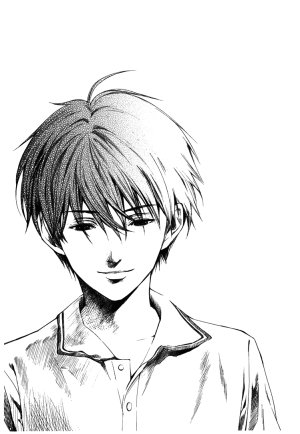So Good, It'll Make You Want to Live... Forever (Just Kidding)
As I started watching the second part of "Death’s Game," I carried with me a mix of anticipation and apprehension. The first season had set up an intriguing premise but stumbled in its execution. I hoped part 2 would build on the foundation and address the issues that held back its predecessor. However, my excitement started to wane after episode one. The quality of the narrative took a sharp downturn. Episode two felt like it belonged to a different series altogether, resembling a generic crime drama filled with exaggerated corruption and untouchable chaebols. The over-the-top acting and simplistic resolutions left me feeling disappointed.
The most problematic aspect of this part was its handling of the suicide theme. The last two episodes, in particular, hammered home a singular message: suicide is selfish, and one should endure suffering for the sake of others. This approach felt incredibly narrow and, frankly, irresponsible.
One part that did stand out to me was the story of the suicidal salaryman. This narrative arc shed light on the harsh reality of the societal and governmental pressures in South Korea. It was a brief yet poignant exploration of the protagonist’s disillusionment with the dream he had been brainwashed to pursue. However, the show didn’t delve deeper into this critical insight. Instead, it reverted to guilt-shaming the main character through his interactions with his mother, missing a crucial opportunity to explore his true desires and struggles.
As someone who values a comprehensive approach to storytelling, I was frustrated by the show’s failure to address the root causes of the high suicide rates in South Korea, such as poverty and unemployment. Instead, it seemed to push a government-endorsed narrative, urging viewers to endure suffering for the greater good. This approach felt like a cheap shot, especially when considering the complex realities of mental health and personal agency.
The show’s narrow perspective on suicide was particularly infuriating by the end. It didn’t explore the mental health states of suicidal individuals or the various circumstances leading to such a difficult decision. For instance, while the main character had a caring mother and a girlfriend, their lack of support when he needed it most was glaring. His mother’s revelation about hoarding money that could have helped him years ago added to my frustration. This aspect of the story felt underdeveloped and missed the mark on addressing the protagonist’s real-life pressures.
I found it difficult to connect emotionally with the characters. While the cast delivered strong performances, the relationships and dynamics felt superficial. The main character’s relationship with his girlfriend followed a clichéd template, and their interactions lacked depth.
The ending left me feeling conflicted. While the main character got a second chance at life, it seemed to invalidate everything he experienced in other people’s bodies. The deaths that were supposed to happen would still occur, and the villains remained unpunished. This resolution felt hollow and unsatisfying.
Reflecting on part 2 of "Death’s Game," I’m left with mixed feelings. The production quality and cast were superb, but the controversial message and disappointing ending overshadowed these strengths. The show had moments of brilliance and potential but ultimately fell short due to its flawed execution and narrow-minded approach to sensitive topics.
Part 2 of "Death’s Game" attempted to explore profound themes but was marred by controversial messaging and missed opportunities. While the quality of the production and the cast’s performances were commendable, the series failed to deliver a satisfying and thoughtful narrative.
The most problematic aspect of this part was its handling of the suicide theme. The last two episodes, in particular, hammered home a singular message: suicide is selfish, and one should endure suffering for the sake of others. This approach felt incredibly narrow and, frankly, irresponsible.
One part that did stand out to me was the story of the suicidal salaryman. This narrative arc shed light on the harsh reality of the societal and governmental pressures in South Korea. It was a brief yet poignant exploration of the protagonist’s disillusionment with the dream he had been brainwashed to pursue. However, the show didn’t delve deeper into this critical insight. Instead, it reverted to guilt-shaming the main character through his interactions with his mother, missing a crucial opportunity to explore his true desires and struggles.
As someone who values a comprehensive approach to storytelling, I was frustrated by the show’s failure to address the root causes of the high suicide rates in South Korea, such as poverty and unemployment. Instead, it seemed to push a government-endorsed narrative, urging viewers to endure suffering for the greater good. This approach felt like a cheap shot, especially when considering the complex realities of mental health and personal agency.
The show’s narrow perspective on suicide was particularly infuriating by the end. It didn’t explore the mental health states of suicidal individuals or the various circumstances leading to such a difficult decision. For instance, while the main character had a caring mother and a girlfriend, their lack of support when he needed it most was glaring. His mother’s revelation about hoarding money that could have helped him years ago added to my frustration. This aspect of the story felt underdeveloped and missed the mark on addressing the protagonist’s real-life pressures.
I found it difficult to connect emotionally with the characters. While the cast delivered strong performances, the relationships and dynamics felt superficial. The main character’s relationship with his girlfriend followed a clichéd template, and their interactions lacked depth.
The ending left me feeling conflicted. While the main character got a second chance at life, it seemed to invalidate everything he experienced in other people’s bodies. The deaths that were supposed to happen would still occur, and the villains remained unpunished. This resolution felt hollow and unsatisfying.
Reflecting on part 2 of "Death’s Game," I’m left with mixed feelings. The production quality and cast were superb, but the controversial message and disappointing ending overshadowed these strengths. The show had moments of brilliance and potential but ultimately fell short due to its flawed execution and narrow-minded approach to sensitive topics.
Part 2 of "Death’s Game" attempted to explore profound themes but was marred by controversial messaging and missed opportunities. While the quality of the production and the cast’s performances were commendable, the series failed to deliver a satisfying and thoughtful narrative.
Esta resenha foi útil para você?







